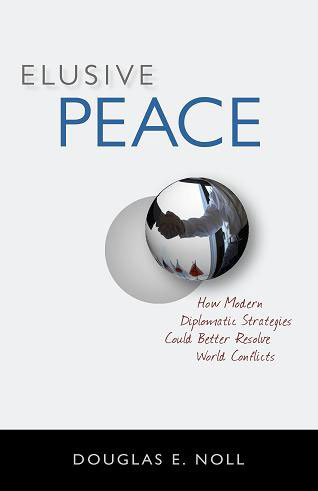Excerpt from Chapter 4 - Beliefs
The one thing I have learned in mediating thousands of conflicts and disputes is that when people fight, emotions dominate reason. If the people in the fight cannot work through their emotions, negotiating an agreement or solution is generally impossible. Impasse is almost always due to the emotions and feelings of the parties. No amount of cajoling, threatening, or persuading will move a mind if it is emotionally locked into a strong belief. That is why Drew Westen’s study strikes such a deep chord—the brain phenomena he discovered play out tragically time after time in conflicts around the world. It sometimes seems that diplomatic negotiators, mediators, and heads of state are oblivious to the fact that deeply held beliefs cannot be bargained away.
What is needed when two or more belief systems collide into deep and intractable conflict is a mediator willing to help the parties look at their belief systems with each other—something they are extremely resistant to doing. The mediator must have courage because the usual first reactions from the parties in conflict are anger, fear, blame, and accusation directed at the mediator. By simply raising the possibility of talking to the enemy about beliefs may be very threatening. As a result, the mediator must often invest significant time in preparing the parties to meet. Preparation includes lengthy individual meetings in which the mediator listens, asks questions, gently probes for self-reflection, and builds trust. The mediator must become the impartial and neutral trusted friend of each side so that when the parties come together, they can look to the mediator for psychological safety and soothing.
This sounds like a lot of psycho-babble to many professional diplomats who prefer to imagine they can put feelings aside and jump right into the substantive issues.
“Why should we waste time with this feeling crap when we have to negotiate a deal?” is the common reaction of the political Type-A personalities responsible for sensitive conflict negotiations.
As a mediator, when I hear people say they are not into “touchy-feely” or that feelings are irrelevant, I know that the feelings are most important. What is really being said is “I am afraid of my feelings. I am not interested in the other person’s feelings. I want to be safe. I want to be in control.”
My job as mediator is to ignore this resistance, not worry about my reputational interest, recognize the underlying fears, and create a safe container to hold them.
So what might a mediated conversation look like between Hussein and Itamar or between Palestinian president Mahmoud Abbas and Prime Minister Netanyahu in 2010? How, in the context of high stakes international mediation, can two extreme beliefs intractably opposed to each other, come together with the help of a skilled mediator?

